Tips for Managing Parenting Anxiety
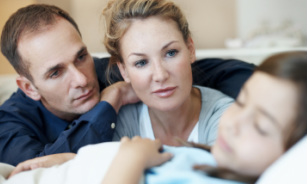
By Sunny Im-Wang, Psy.D., S.S.P. If you’re experiencing anxiety about being a parent, you’re certainly not alone. In fact, it’s pretty normal to have some doubts about your parenting skills or to worry about your children at times. After all, you’ve taken on the most difficult job in the world! Some of the typical anxieties that plague parents are:
And the list goes on… As a parent, you’re responsible for precious cargo—for keeping your child safe and healthy as well as teaching him or her how to learn important life skills, become a good person, and grow up to be a successful adult. That can be a daunting, anxiety-provoking task! Fortunately, there are several things you can do when you are feeling anxious or stressed. Following are several suggestions to help you manage and alleviate your parenting anxiety. First, understand what parenting anxiety is! If you’re a parent, you’ve experienced parenting anxiety in one form or another on regular basis, and it may come and go with various levels of intensity. This anxiety is actually good; it’s what nature intended to ensure survival for our species! We are wired to want the best for our offspring. But it becomes a problem when it begins to take over everything we do and when actions and choices intended to help our children succeed backfire and do more harm than good. Parenting anxiety needs to be in check in order for you to maintain a healthy amount of parenting anxiety. Talk regularly to your spouse or partner, especially about your concerns and worries regarding your children or the way you are parenting. Discuss issues as they come up. Open communication is essential to your relationship with your partner. You can encourage and support each other as well as brainstorm solutions when a problem arises. If you’re a single parent, talk to close friends, family members, and especially other parents. You’ll often find that other parents struggle, or have struggled, with many of the same feelings or problems. Take good care of your physical and emotional needs. This includes getting adequate, restful sleep, eating a healthy diet, exercising regularly, and making time for fun and relaxation. You’ll feel less stressed and anxious when you take good care of yourself. Aerobic exercise boosts your mood and helps reduce anxiety1. Relaxation exercises, such as guided imagery and progressive relaxation, can also be very helpful if practiced regularly. Play and have fun with your children regularly. Busy parents often get caught up in work, household chores, and childcare. Unless you schedule time for fun with your kids, it’s easy to neglect it. Even just a few minutes each day can go a long way. This not only helps you relax, but it also strengthens your relationship with your children. On weekends or as schedules permit, plan fun outings or events that you can do as a family. If you are feeling especially stressed or anxious, take a short break. Go for a brisk walk or find a quiet place to collect your thoughts and just breathe deeply for a few minutes. This is especially helpful if everything feels chaotic. If you’re the only adult and your children are too young for you to leave alone or out of your sight, make it a game to see who can keep still and be the quietest for a few minutes. Make meditation a regular part of your life. Meditation, also known as Mindfulness practice, doesn’t have to involve incense and strange chants. It takes only a few minutes each day to be effective. Meditation can be as simple as sitting quietly for 10 to 15 minutes, closing your eyes, emptying your mind, and focusing on nothing but taking slow, deep breaths. Regular meditation and mindfulness practice will help you feel calm and centered2. Consider psychotherapy, particularly if you struggle with anxiety that is affecting your functioning or sleep, or causing you significant distress. Psychotherapy can help you learn good coping skills and change thought patterns that may be contributing to your anxiety3—and improve your quality of life. It’s not easy being a parent, but anxiety doesn’t have to control your life while you raise your family. For permission to reprint this article, click here. © 2010 Sunny Im-Wang, Psy.D. All rights reserved. ________________________ 1 Salmon, 2001. Clinical Psychology Review, “Effects of physical exercise on anxiety, depression, and sensitivity to stress: A unifying theory.” 2 Brantley, 2007. Calming Your Anxious Mind: How Mindfulness & Compassion Can Free You from Anxiety, Fear, & Panic. 3 Freeman, Simon, Beutler, & Arkowitz, 1989. Comprehensive Handbook of Cognitive Therapy. |
Here are more articles you might want to readThe Importance of Self Care for Parents
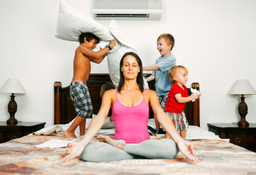
Air Travel with Young Children: Airport, Airplane, and the Air Pressure?
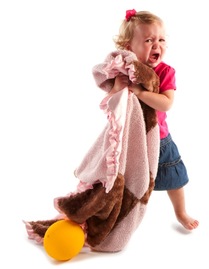
Understanding Your Child’s Sleep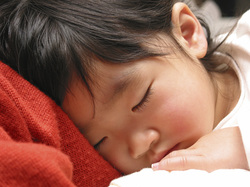
Executive Function: Problem Solving Skills and Other Complex Thinking Skills in Children

Picture Journaling for Young Children
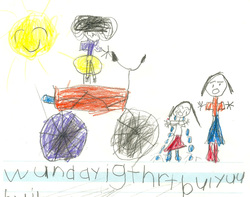
Storytelling and Bookmaking Activities
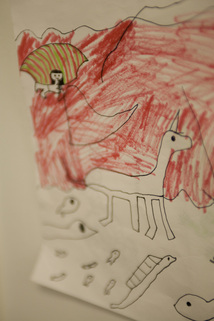
|
Copyright © 2011-2024: Sunny Im-Wang, Psy.D., S.S.P. All Rights Reserved.
DISCLAIMER: The information on this site is for general information only. This information should not be construed to be either formal psychological or medical advice or the formation of a professional relationship with the authors of any of this information.
Persons accessing this site are encouraged to seek independent professional advice regarding their individual issues.
DISCLAIMER: The information on this site is for general information only. This information should not be construed to be either formal psychological or medical advice or the formation of a professional relationship with the authors of any of this information.
Persons accessing this site are encouraged to seek independent professional advice regarding their individual issues.